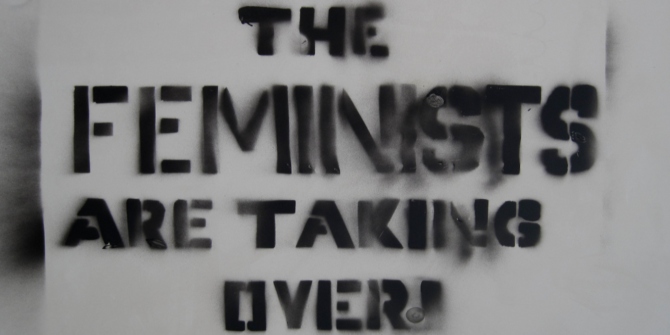Many assumptions surround the capabilities of autistic people, especially in the workplace. As a result, stereotypes and a lack of understanding of the skills of many autistic people influence their employment rates and stagnate inclusivity. Jasmine Virhia interviewed autistic workers in different sectors and lets them describe their experiences in their own words.
Autism Acceptance Month runs throughout April and provides a platform to promote understanding, inclusion and celebration of neurodiversity. This month serves as an opportunity to amplify the voices of individuals who are autistic, acknowledging their perspectives and contributions to society. It encourages meaningful dialogue, promotes empathy, and empowers autistic individuals to share their experiences, with a focus on strengths and abilities. To celebrate Autism Acceptance Month, organisations can reaffirm their commitment to creating more inclusive and supportive workplaces for all individuals.
As part of the Diversity and Productivity programme, researchers at The Inclusion Initiative have been conducting interviews across multiple sectors, to better understand the enablers of, and barriers to, productivity for professional workers. The research focuses on understanding the experiences of those typically underrepresented in the workplace, such as ethnic minority women and those who are disabled, neurodiverse, diagnosed with mental health conditions and trans or gender fluid. Names used here are pseudonyms, to anonymise the identity of participants.
Defining autism
There often exist assumptions surrounding the capabilities of autistic people, particularly in the workplace. Stereotypes and a lack of understanding of the skills that many autistic people possess not only influence their employment rates but stagnate inclusivity in professional workplaces. In celebration of Autism Acceptance month, consider how autistic people such as Christopher, who at the time of interview was the chair of a leadership team in a non-for-profit organisation, explains what autism means to him:
Autism to me sounds like I was born to face hard challenges in life but also find the extraordinary things that make it worthwhile to become successful in all areas of life. So that’s being, or trying to be, organised, learn the process, control its destination, control my destination and my fate to make it into the big time in all sorts of work, but particularly the business world.
Working towards acceptance
Christopher also describes the benefits of a partnership programme at his workplace that provides opportunities for non-neurodiverse and non-disabled people to understand the experiences that disabled and neurodiverse people often face:
It’s where you get people with intellectual disabilities partnering up with somebody who has no disabilities whatsoever, and being able to integrate through sport, athlete leadership, and so on. And the effect is powerful because people are saying ‘oh we need to bring in people with disabilities into our world’, but I think it’s being done the wrong way round. I think what needs to be done is for the non-disabled person to enter that person’s world to understand how many barriers they face each and every day.
Christopher describes in more detail the benefits of the programme and what should be focussed on for greater acceptance of autistic people:
It is about not looking at the person’s weaknesses, but looking at their strengths in terms of what contributions they can achieve. It’s about accepting a person. It’s about seeing their talent, it’s about seeing their integration, it’s about seeing their work ethic, and what they can bring to the organisation that they’re working in, in order to be able to excel as well.
Clear expectations and transparency
Workplace “norms” are often created by a homogenous group of colleagues and can sometimes involve adhering to ‘unwritten rules.’ Organisations must be cognisant of how, for some autistic employees, productivity will be closely related to the structure of work. An acceptance of different working styles, particularly if employees work in highly autonomous environments , will enable productivity.
Bianca, who is a researcher in the pharmaceutical industry, explains:
Depending on how I feel about someone or how my working relationship is with them, they can either work to my strengths or destroy my self-esteem. For example, I had a report due for a client and we told them a deadline of 31 October. But my colleague, who is my senior, wanted to deliver it before then, like a month before then. We could do it, but I was not mentally in the space where I thought we would do that.
I pushed back and the [ironic] reaction was, “Oh but we told the client this date, so why do we need to deliver it early?” I think she saw it as trying to procrastinate. I take things quite literally. If the sheet says that date, then why are we not doing that? And I think it can come across as rigid and it is really rigid, so I get why it’s frustrating for people. I like structure and plans and wanting to know what’s happening in advance so that I can plan when I need to be productive.”
Bianca continues to explain that despite what she describes as ‘rigid’, when engaged in work her productivity is immense, and her work clearly adds value:
And the other side of it, I can probably work ten hours straight, if I’m in the zone and I’m interested in it, I can be hyper focused, I could bash something out within a day, almost. And then I’ll get really good feedback for being like a really efficient, really organised, you know, my insights are really valuable.
By embracing the diverse perspectives and talents of autistic employees, we not only create more inclusive workplaces but also foster a society that celebrates neurodiversity in all its forms. As you reflect on the insights shared by individuals here, consider whether your organisation can create a partnership programme, whether you and your colleagues can challenge some of the “norms” in the workplace to make working practices inclusive for all employees, and whether you can learn about the lived experience of autistic colleagues.
MPs are holding a debate today on the Buckland Review of Autism Employment.
- This blog post represents the views of the author(s), not the position of LSE Business Review or the London School of Economics and Political Science.
- Featured image provided by Shutterstock
- When you leave a comment, you’re agreeing to our Comment Policy.






“Jasmine Virhia’s insightful interviews amplify the voices of autistic individuals like Christopher, sparking meaningful dialogue and fostering inclusivity in the workplace. Let’s celebrate Autism Acceptance Month by embracing neurodiversity and creating more inclusive environments for all.”